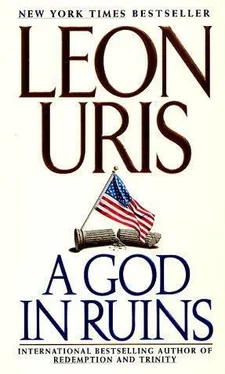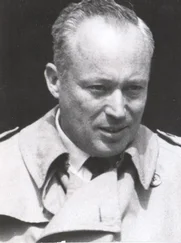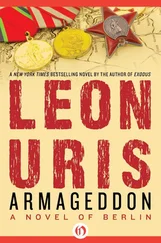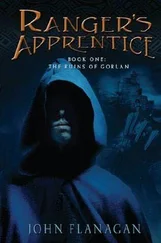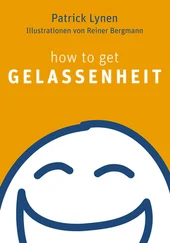Intimacy among staff was more risky.
Under control, the hordes of legislators, consultants, media, public relations hired guns, and lobbyists entered a correct and hallowed place.
Daringly, the press facility near the Oval Office was exiled to the nearby Executive Building. The media went into a rage. Darnell knew that this was one the President could win. After the media debacles at the end of the last century, the public was delighted that the press was learning manners.
Thornton Tomtree was the first fully computerized president. He
installed a crew of the finest computer analysts. No matter what the
chore, background on a political appointee, weather in Alaska, cabinet
meeting, they could dissect and translate information faster than any
like team in the world. Tomtree went into his meetings with
up-to-the-second data,
the sway of public opinion, every nuance of the financial world.
Darnell Jefferson had the run of the place. He pulled together a public relations staff of rare genius to counter any idea that the Oval Office was rigid.
With his first years scandal free, the nation’s social agenda was soon overtaken by power bestowed on the corporate world, allegedly to keep America as the only superpower.
If Thornton was smart about one thing, it was human greed. Every American owned some. His programs were designed so the public saw a payoff for them.
Pucky had grown into a stylish sixty-year-old. She and the President had been long unfamiliar with one another’s bed. This did not result in her anger, but in a strange sense, it gave her freedom. She did all the First Lady things, often adding spice and humor and throwing the most elegant banquets in memory.
Thornton understood her value and rewarded her by endowing the cultural scene.
I am sleeping and I can’t wake up! I can’t wake up! Where the hell is Pucky? Where am II It will be daylight, and O’Connell is addressing the nation .. . enormous consequence.
Where the hell is Pucky?
“Mr. President,” my steward, Eric, repeated, pulling me out of a deep, confusion-filled sleep. I pointed at my mouth. He handed me a glass of mouthwash and held a spittoon, then put drops into my eyes.
“It is four A.M.” Mr. President, two o’clock Rocky Mountain time.”
That got my attention. I asked for Darnell’s whereabouts. Eric had hunted him down before he awakened me. Darnell was tied up for ten minutes or so in the press room. “Hold my calls until Darnell can brief me,” I ordered.
Come on, Darnell, God dammit! That’s funny. The first time I said those words to him was when we were teenagers.
Darnell Jefferson, the first black billionaire in American history
he who sat on three dozen corporate boards, he who endowed the black community and colleges handsomely, he who personally went to Moscow as the Soviet Union was breaking up and snared the twenty best computer scientists in the country for T3, he who talked me into building a pleasure palace for my workers which became the model for all industry, he who, he who, and so forth and so forth.
Well, I’ve done damned well for Darnell .. . and he’s done right well for me. He is the only one whom I can trust in this vacuum I carry. I trust no one in there but him. Suppose we had never met? Suppose he had decided not to spend his life keeping my public image pure and dynamic?
On New Year’s Eve of 1999 I told him I was going to make a run for the presidency in 2004. Darnell was way ahead of me and charted out a brilliant campaign.
We rode to the White House right after the turn of the century. The care, feeding, and control of the Internet had created great answers and greater confusion.
All of a sudden the world had potentially three billion would-be writers, not only with free and unfettered access, but hidden by anonymity.
The great computer firms were bent on speed and shrinking chips. Packaging, marketing them were the berries. Competition had become slaughterhouse-mean and fighting off an antitrust suit the most noble form of corporate life. No one seemed to have a vision of the future, or where this electronic colossus was taking us.
Darnell took a team of experts and science writers and Grafted a manuscript: The T3 Commonsense Guideline for International Internet Ethics: A Primer for the 21st Century.
I wrote the final draft and subsidized a major publisher to put it on
the market. Damned if it didn’t sell over a million copies in the
bookstores and another million over the various web sites. I made T3
Commonsense a must in every convention and salesroom at sweetheart prices and sent hundreds of thousands of copies to schools and universities.
Like According to Hoyle and Burke’s Peerage before it, T3 Commonsense established the rules of the road on a road sorely needing them. I had taken my first step on the golden carpet which climaxed with my election as president of the United States.
All the above may sound funny to you in light of the nation coming out of the closet by the end of the nineties. However, many of the things we let out of the closet would serve us better if they were shoved back in.
The point of this is to say, I myself, Thornton Tomtree, am a clean, moral, progressive, self-made entrepreneur.
The Four Corners Massacre was not my doing, but it happened on my watch. Darnell Jefferson and Pucky literally forced me to travel a nation in mourning and share the people’s grief.
Awkward and stumbling in the beginning, I learned the art of compassion. Even though I never personally knew or understood it. I acted it out, people responded to my “sincerity”.. . I never felt the depth of their anguish. Isn’t that what a leader is all about: not to go down in an ash heap, but demonstrate strength and ability to endure after a tragedy?
If a leader felt pain in every flood, hurricane, shooting, epidemic, school bus overturning ... he would cave in and no longer be a leader.
Darnell and Pucky forced enough of the mundane stuff into me to help me regain my position for reelection.
Speaking of tragedy! I was gaining on Governor O’Connell in the polls, and at the Great Debate I expected to bury him. I blew it! As for Pucky’s part in this, it is history better left, unwritten.
We are now less than two weeks away from the presidential election of 2008. I’m not doing so well. Or am I?
Why, out of clear blue sky, did O’Connell call for national TV coverage of an announcement?
Darnell came in with a handful of pages. He glimpsed at the dark suit Eric had laid out. “Put away that mourning outfit,” Darnell ordered Eric. “I want the President to wear a green sports jacket and open collar.”
“Darnell.. .”
“A lot of folks downstairs need their morale lifted.”
No use arguing over so trifling a matter.
“What’s the latest?”
“We have some data from the NYPD. This Ben Horowitz visit seems to have set off some kind of chain reaction in the O’Connell camp. Ben Horowitz is a detective lieutenant, thirty years’ service, semi-retired or detached to teach at the John Jay College of Criminal Justice. Horowitz’s father was a professor of Russian studies at NYU. Horowitz’s own expertise is missing persons.”
“Got any photos?”
I lifted my magnifying glass, studying the pictures. “There may be a resemblance, there may not be. I can’t tell from these. What else?” Tomtree asked.
Читать дальше
